 In this week’s Business Roundtable statement on the purpose of a corporation, IBM CEO Ginni Rometty had this to say….“Society gives each of us a license to operate. It’s a question of whether society trusts you or not. We need society to accept what it is that we do.
In this week’s Business Roundtable statement on the purpose of a corporation, IBM CEO Ginni Rometty had this to say….“Society gives each of us a license to operate. It’s a question of whether society trusts you or not. We need society to accept what it is that we do.
Yet the announcement has been met with some skepticism.
Don’t believe the Business Roundtable has changed until its CEOs’ actions match their words Fast Company
Business Roundtable Statement is Just Propaganda LA Times
Stakeholder Capitalism Will Fail if it’s Just Talk Bloomberg
Why the skepticism? Perhaps because the statement provides no specifics regarding the actions that this group of CEOs will undertake to change the way society views them and their companies, or simply that talk is cheap.
I humbly suggest, as I have been doing for over 10 years, that while “Purpose” may be easy and convenient, it does not address the “real” problem facing CEOs nor should it be the Business Roundtable’s starting point. Instead, this group of almost 200 business leaders should first take a close look at their Principles, meaning their individual and collective ethical standards, and how they apply these principles to building trustworthy organizations. Acting with the right principles leads to the right decisions, and only then can societal trust be earned. “Purpose” through check the box practices and “one off” delegated programs will simply lead to increasing skepticism.
Trust Across America-Trust Around the World, offers these principles to the Business Roundtable CEOs as a guide for further discussion. A similar version designed for teams and leaders interested in starting a trust discussion has been read over 65,000 times.
Barbara Brooks Kimmel, CEO Trust Across America-Trust Around the World
Copyright 2019, Next Decade, Inc.
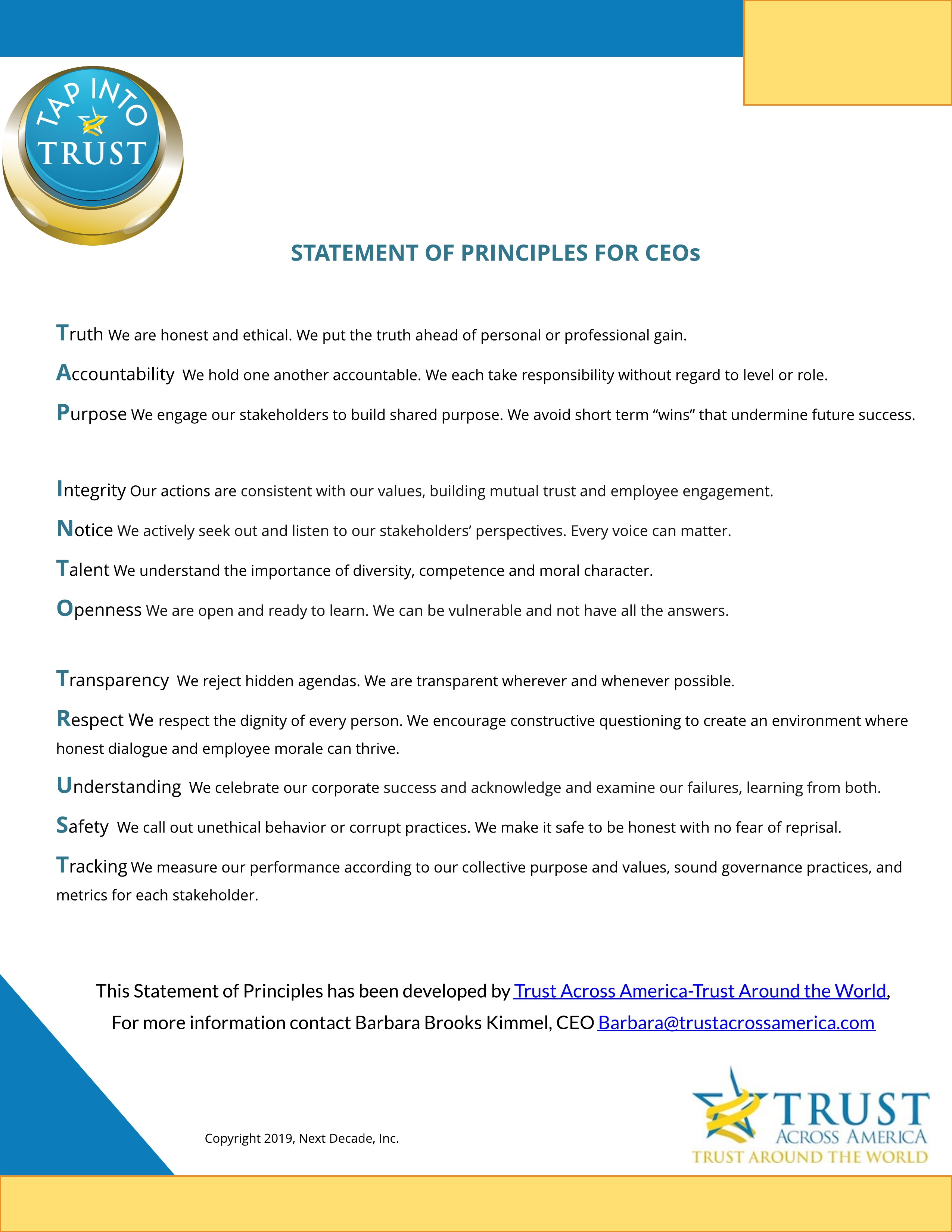
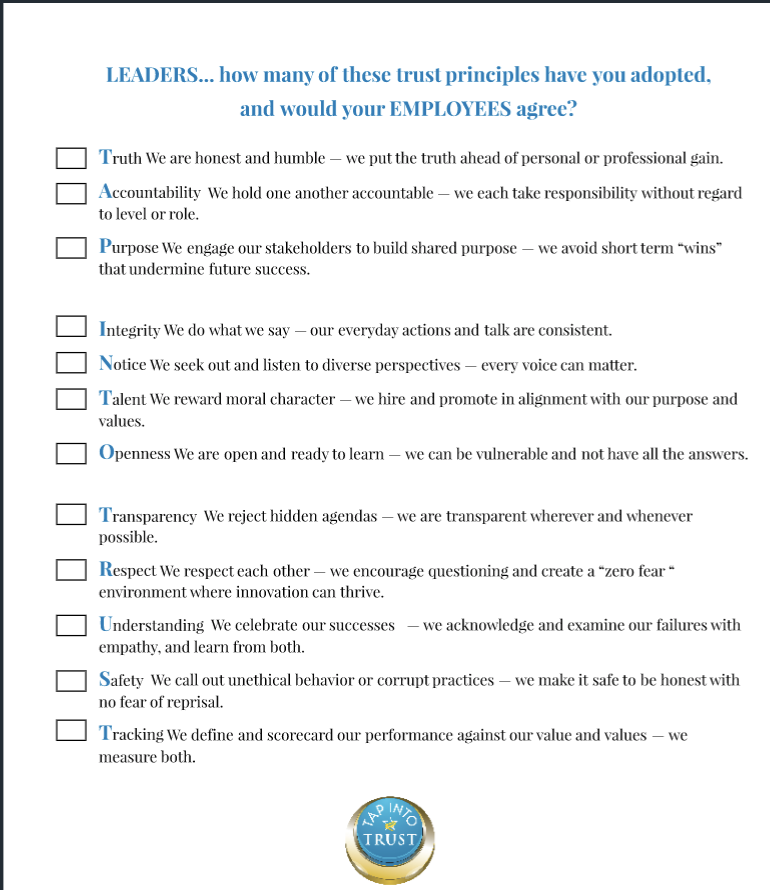
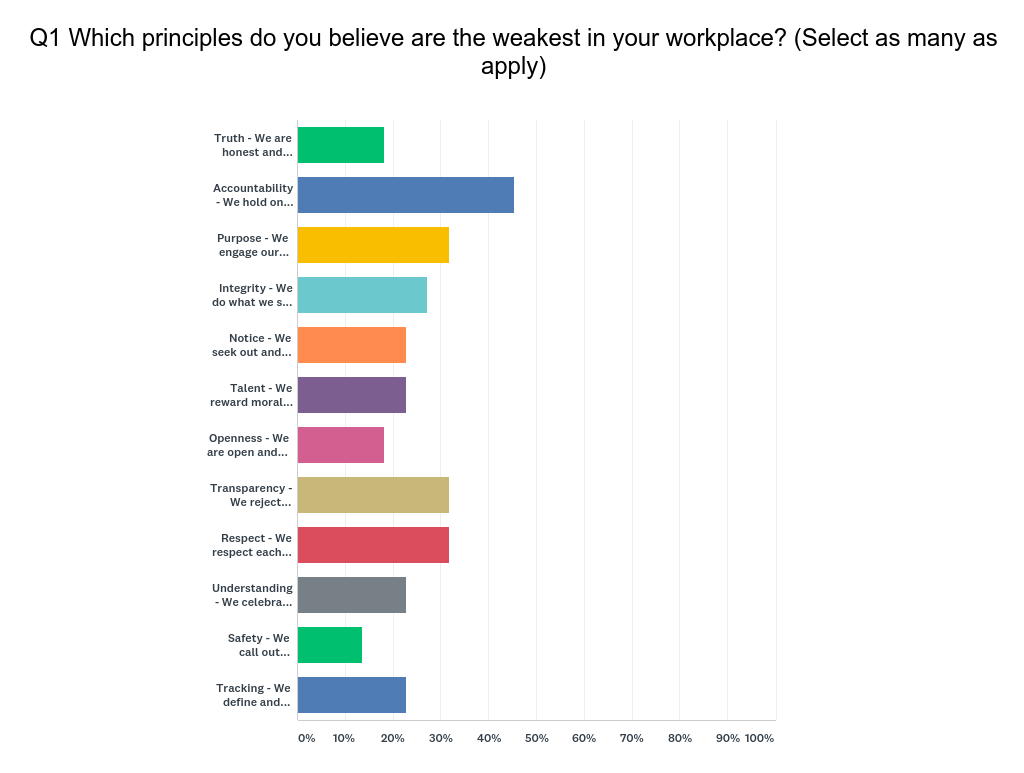
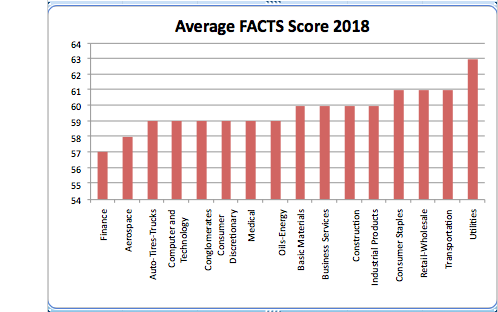
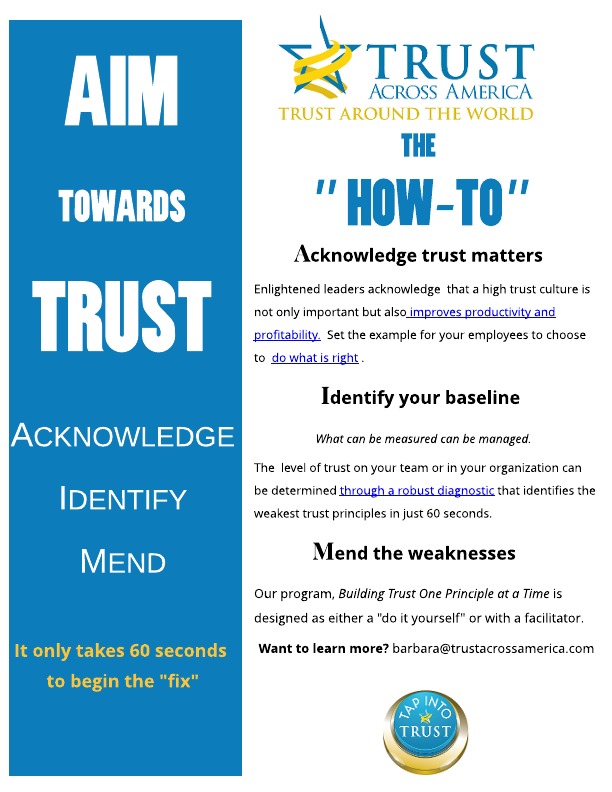
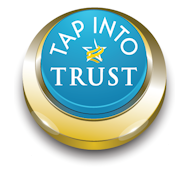
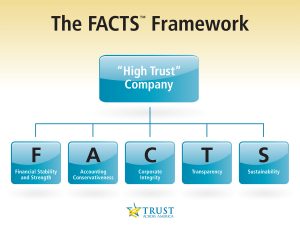
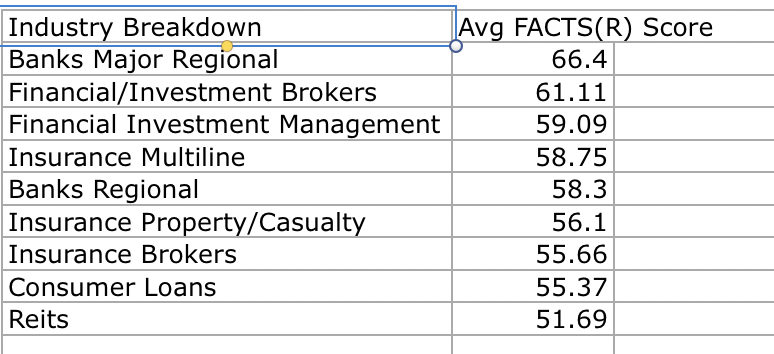

 Purchase our books at this link
Purchase our books at this link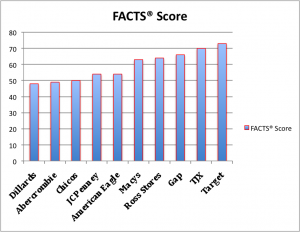
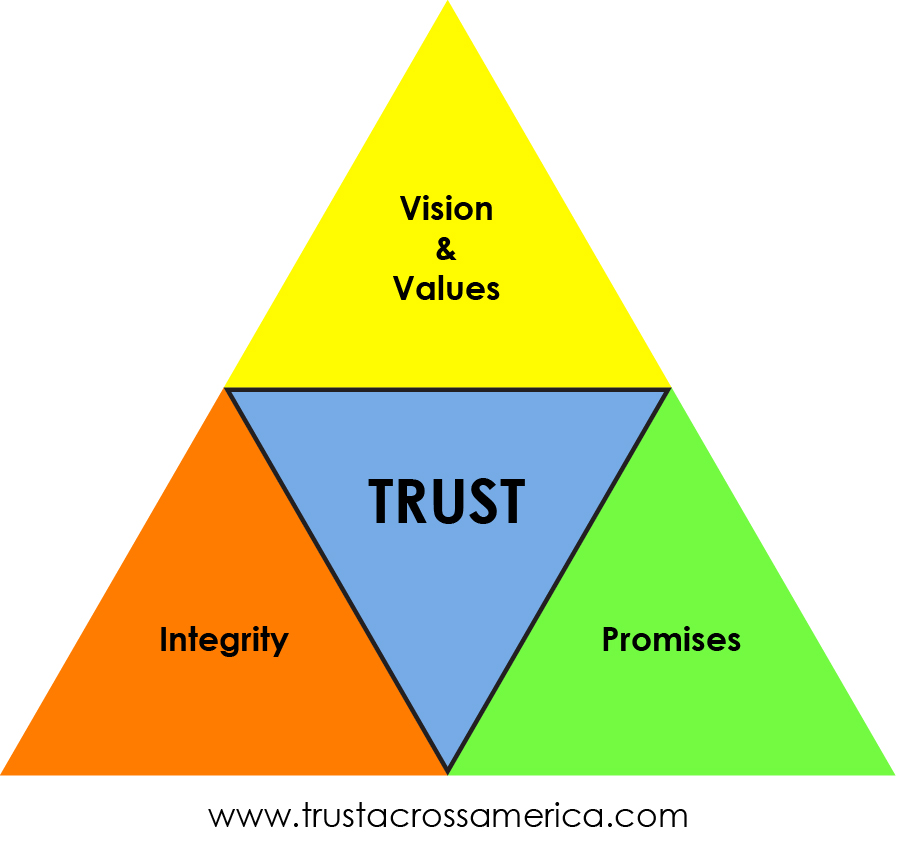


Recent Comments